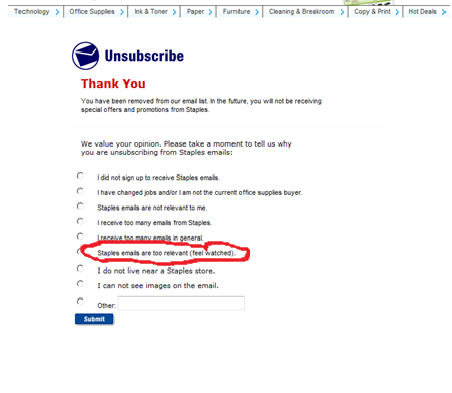It seems like nobody likes sales people (at least when they’re customers), and “sales” seems like a dirty word these days. But it doesn’t have to be that way.
Nothing I can think of sells without selling. Not even candy bars in vending machines.
Let’s explore that thought experiment for a moment. Imagine one of those vending machines with the glass front that allows you to see its contents. In this one, all the merchandise is packaged in identical, completely nondescript containers. Perfectly cube-shaped, unmarked cardboard boxes.
You have no clue what’s inside any of them. Could be anything.
When you happen across this vending machine, what are you going to buy? Will you press A1 or E7?
I’m willing to bet you’ll choose to keep the dollar in your pocket.
Why? Because nothing is being sold. It’s just there. It’s available for sale, but it’s not being sold.
Now let’s imagine the vending machine is in the middle of a sweltering desert. There’s nothing else in sight but sand and scorpions. And you’re getting really, really thirsty.
What do you do now? Remember, you can’t tell what’s in any of those containers. Might be bottled water, or a bag of cheese curls. But since you have that dollar in your pocket, you might take a chance and pick something at random. You desperately need something to drink, and you have no other options. So you take a chance.
Why? Because your thirst is more important, more urgent than your dollar bill.
A Salesman’s Journey
I’ve sold lots of different stuff over the course of my career. Everything from warranties to watches. I loved it. The rush of closing a deal. The battle of wits and wills when overcoming customer objections. The competition between peers and with myself
At one point, I felt like I could sell anything to anyone.
Then, Harry Browne smacked me across the face with his painfully simple, brutally powerful book, The Secret of Selling Anything.
The question is often asked, do salespeople sell, or do customers buy? I always held to the position that salespeople sell. When transactions take place, the success is 90% due to the ability of the salesperson.
Reading Browne’s book, I found out that I was wrong. I was introduced to what Browne referred to as the “universal fallacy:”
“The universal fallacy is the belief that an individual would willingly accept something unprofitable to himself.
“No individual will give up some of his own resources for something he values less. When you think he will, you’re headed for failure. He may very well make an exchange that you would never make — but he will not willingly make an exchange that will lower his values.” (Author’s emphasis)
No one willingly does what she does not want to do.
Jonathan Edwards, considered by many to be the one of the greatest minds in America’s history, had this to say about making decisions: people “always act according to the strongest inclination they have at the moment of choice.”
Edwards is saying that, from the options available to us, we always choose what has the strongest, most desirable emotional impact on our lives in that moment. Period.
Back to the Vending Machine
Let’s put the shoe on the other foot.
If you were responsible for the sale of just ONE of the items in the vending machine, how would you get the guy in the middle of the desert to spend his dollar on your product?
For starters, you’d make sure that he knows it’s a refreshing liquid.
In our example, where does the selling power come from? It comes from the thirst of the guy in the desert.
On the other hand, could you sell salty potato chips to him? I don’t care how good a salesperson you put on that job, he’s not going to have much success.
We see that people buy what they want. Selling is (or at least it should be recognized and treated as) giving people what they want. Helping them satisfy their desires and needs.
With the vending machine, you’re not selling without selling. You’re selling without being obnoxious. There’s a major difference!
Guess what. Your salesmanship is nothing more than increasing the likelihood that your product in that vending machine is the one that gets picked.
The argument isn’t so much whether salespeople sell or customers buy. It’s both! The desire comes from the customer. It is the job of the salesperson or marketer to help the customer make the best decision.




